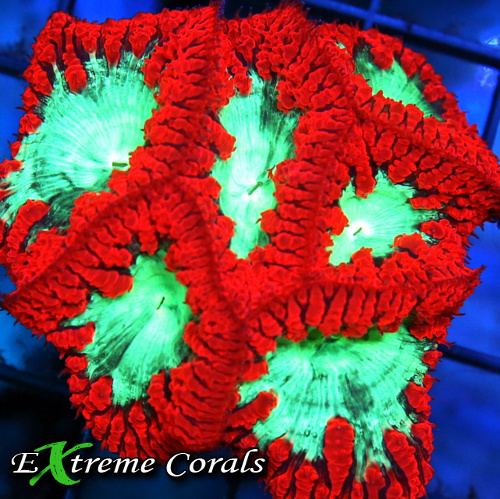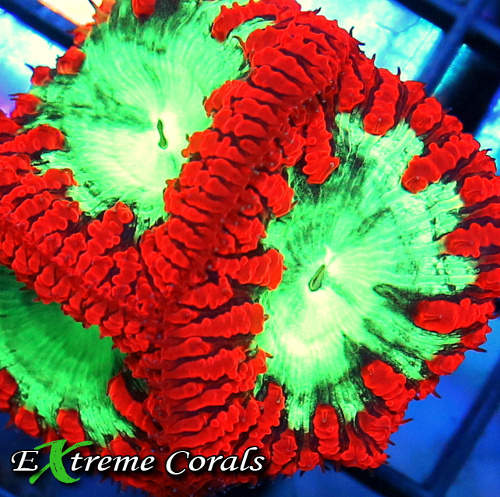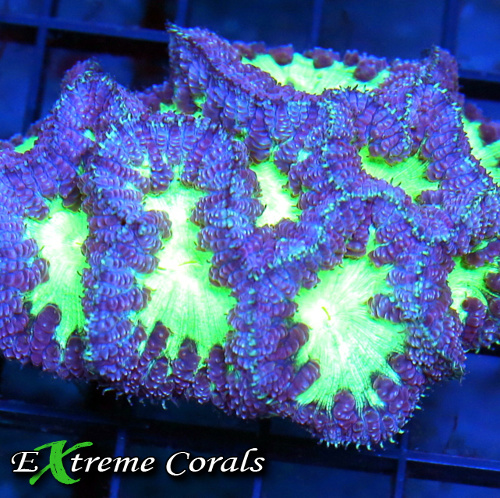Extreme Corals News and Updates
8 Common Mistakes to Avoid with Blastomussa
Avoid These Common Mistakes to Help Your Blastomussa Thrive in a Home Reef Aquarium
Keeping Blastomussa corals healthy requires attention to detail and avoiding common beginner mistakes. This guide walks you through essential care tips like managing water quality, lighting, feeding, and placement. With the right knowledge and patience, your Blastomussa can become a stunning centerpiece in your reef tank.
by scott Shiles • July 22, 2025
Keeping Blastomussa corals healthy can be a rewarding experience, but it can also be tricky if you're unaware of common pitfalls. This guide will help you steer clear of some of the most frequent mistakes made by aquarists. Whether you're a beginner or seasoned hobbyist, understanding these mistakes will keep your Blastomussa thriving.

Underestimating Water Quality Requirements
Water quality is vital for the health of your Blastomussa. Many beginners might overlook the importance of regular testing and proper filtration. It’s easy to assume that a little fluctuation won’t hurt, but even slight imbalances in parameters such as pH, salinity, and ammonia levels can severely impact these delicate creatures.
To maintain clarity in your aquarium, invest in a good quality water testing kit. Regularly checking your water will allow you to catch potential problems before they escalate, ensuring a stable environment for your Blastomussa. Remember, consistent monitoring is a fundamental part of successful reef keeping.
Furthermore, consider using activated carbon and protein skimmers. These tools help maintain water clarity and remove harmful impurities, making a significant difference in your overall setup. Your corals are worth the effort!
Ignoring Proper Lighting Conditions
Blastomussa corals thrive under specific lighting. Too much or too little light can be detrimental, and understanding their needs is crucial. Generally speaking, these corals prefer moderate light conditions, but the exact requirements can vary depending on your aquarium setup.
If you're unsure, starting with adjustable LED lighting can be beneficial. This way, you can monitor how your Blastomussa responds to various intensities gradually. Observing the color and expansion of their polyps can provide valuable insights, signaling whether they're happy with their current light.
Don’t forget about light duration too. A consistent photoperiod of about 8 to 10 hours is ideal. Any more or less might confuse your corals, disrupting their natural rhythms, which can impact their overall well-being.
Feeding Inconsistently
Consistent and appropriate feeding is key to the health of your Blastomussa. Failing to provide the right nutrients can hinder their growth. Many aquarists make the mistake of thinking that these corals can thrive solely on the nutrients available in the water column.
In reality, Blastomussa benefit from regular feeding with high-quality coral foods or frozen foods rich in nutrients. Feed them every few days to ensure they receive the essential elements needed for vibrant colors and robust growth.
Moreover, watch for signs that they’re hungry, like tentacle extension. This indicates that they’re ready to feed. Remember, though, that overfeeding can also lead to problems, so strike a balance—observing your corals will guide you in providing the right amount in your feeding schedule.
Neglecting Flow Rate Needs
Blastomussa prefer gentle water flow. Too much turbulence can stress them out, while too little can lead to stagnation. Striking a balance is crucial for their health. Pay attention to the placement of powerheads and filters in your aquarium.
A good rule of thumb is to ensure that the flow is enough to disperse food particles but not so strong that it causes your corals to retract. Observing how they open up during feeding times can help you gauge whether the current is suitable.
Remember, these corals are not just beautiful; they're also sensitive! If you notice that your Blastomussa is frequently closed up or not extending fully, consider adjusting the flow rate to accommodate their needs better.

Overcrowding the Aquarium
Aquarium space is important for Blastomussa. Overcrowding can lead to competition for resources and increased stress. It’s tempting to add more corals to create a vibrant reef ecosystem, but too many can create an unhealthy environment.
Plan your layout thoughtfully, allowing ample space for each coral to grow and thrive. Additionally, regularly check for any disputes between corals—aggressive behavior can hinder growth and even lead to coral death.
Consider reserving larger areas for Blastomussa, as they do better when they have room to expand. A well-thought-out aquascape not only looks beautiful but provides a healthier place for your corals to live.
Failing to Monitor Coral Health
Regular observation of your Blastomussa can help catch problems early. Ignoring signs of stress can lead to larger issues. Look for any unusual behavior like retraction or discoloration; these are early warnings that something isn’t right.
Keeping a journal can be helpful; note any changes in water parameters, feeding habits, or coral behavior. This will assist you in identifying patterns and make troubleshooting much easier. When you know what’s normal for your tank, spotting the unusual becomes a lot simpler!
Additionally, learn to recognize the signs of pests or diseases. Early detection is your best defense. If you catch an issue quickly, you can often address it before it spreads or harms your precious corals.
Not Understanding Compatibility
Some tank mates can be aggressive or harmful to Blastomussa. Researching compatibility is essential for a peaceful aquarium. Introduce new inhabitants carefully, and pay attention to how they interact with existing corals to avoid unnecessary conflict.
Fish and invertebrates have varying temperaments; some can be downright aggressive, while others are more peaceful. It’s crucial to choose species that won’t intimidate or attack your Blastomussa. Taking the time to research before making additions can save you a lot of future headaches.
If you already have aggressive species but want to keep Blastomussa, consider design elements like barriers or placing your corals in less accessible spots to protect them from potential harm.
Being Impatient with Growth
Corals take time to grow. Expecting rapid growth can lead to frustration and misguided care practices. Blastomussa, like many others, require patience, so it's essential to remember that some processes in reef keeping demand a long-term perspective.
Setting unrealistic expectations can lead to overzealous care routines such as changing water too frequently or adjusting parameters unnecessarily, which can actually hurt your coral's health rather than help it. Instead, focus on providing a stable environment, as that's key for steady growth.
Celebrate the small victories, like slightly larger polyp extensions or a change in coloration! Each little sign of life should be appreciated because that means you're on the right track. While time is a factor, with constant care and attention, your Blastomussa will reward you with their beauty.

